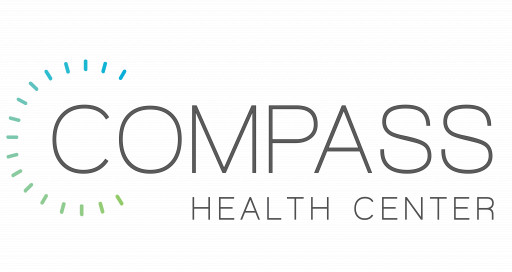CHICAGO, June 01, 2022 (GLOBE NEWSWIRE) -- Compass Health Center responds to the recent school shooting in Uvalde, Texas with essential information on how to discuss tragedies and news events with children. Compass Health Center's team of mental health experts emphasizes the importance of properly working with children and teens to address their stress responses.
Child, adolescent, and adult psychiatrist, Claudia Welke, MD, Chief Medical Officer, and Co-founder, Compass Health Center & Compass Virtual, explains how mass shootings can have an impact on the mental health of young people, as well as parents, caregivers, and teachers. These tragedies call for sensitive observation and honest conversations between young people and the trusted adults in their lives.
"The school shooting that occurred this week will, unfortunately, impact the youth of Uvalde for the years to come. But young people across the country with little proximity to the event have also been greatly affected and are experiencing their own anxiety. Unfortunately, anxiety can be problematic in itself and can lead to serious mental health issues such as depression, substance use, and suicide. Our youth are really struggling at this time with recent shootings, COVID, and the ongoing mental health crisis that has been plaguing our country for way too long," said Welke. "In the days after these events, it is important to keep the conversations going with children and teens. If you do notice that your child is struggling with persistent changes in behavior, sleep, or appetite, make sure you reach out for professional help. Thankfully, there are many resources in our communities whose mission is to help support the mental health of our youth."
Mass shootings may contribute to child and adolescent anxiety. Finding solutions to help young people cope with such events should be done through delicate guidance by parents, school, and perhaps a mental health counselor. In addition, there is a growing mental health crisis among children and teens. According to a global study conducted by JAMA Pediatrics, youth depressive and anxiety symptoms doubled during the pandemic, with 25% of youth experiencing depressive symptoms and 20% experiencing anxiety symptoms.
Below are 8 tips for parents/caregivers from mental health experts for having conversations with children and teens about tragedies:
1. Allow yourself to have your feelings—grief, anger, rage, fear, etc.—but make sure that you have collected yourself before talking to your child.
2. Take your child's lead. Compass encourages parents and trusted adults to acknowledge that a tragedy occurred, to make space for questions and a discussion, and then allow the child to direct the conversation.
3. Focus on safety. Parents and trusted adults should reassure children that places like schools, grocery stores, and Compass are typically very safe.
4. Validate their feelings. Share that you were also scared, worried, or (insert your own feeling here). No emotion is "wrong."
5. Limit TV and social media. Disturbing images or graphic descriptions can impact children.
6. Maintain a typical routine and be mindful of any changes in sleep, appetite, or behavior that may be an indication of increased anxiety.
7. Give them a sense of control. If your child does seem to be exhibiting symptoms of anxiety, teaching them a few simple relaxation techniques, such as deep breathing, may help.
8. Remember there is no "perfect" thing to say. Listening, making space for conversation, and reassuring them that they are safe goes a long way.
"In the aftermath of any tragedy, it is reasonable for adults to experience feelings of sadness, fear, and anger. When the tragedy is a school shooting, it can alter our ability to feel safe in a place our children spend much of their time. When the grocery store, places of worship, and schools no longer feel safe, it can make us feel helpless," said Ann Bystedt, LCSW and Compass' Director of Child Programs - Chicago. "It is important to be mindful of your own emotions and their impact on your daily functioning. Children turn to trusted adults in their lives for reassurance and adults must take time to process their own emotions to effectively be there for their children. For young people and adults, if worries, anger, or fear begin to impact your ability to function, it is important to recognize that reaching out for more support is brave and care is available."
Having access to comprehensive behavioral health is a key component in dealing with the aftermath of these types of traumas. Qualified treatment programs should provide the skills and strategies needed to cope appropriately.
Media Contact: Britt Teasdale; Associate Director, Brand Management, Compass Health Center
Phone 216-926-0550 | bteasdale@compasshealthcenter.net
Related Images
This content was issued through the press release distribution service at Newswire.com.
Attachment

